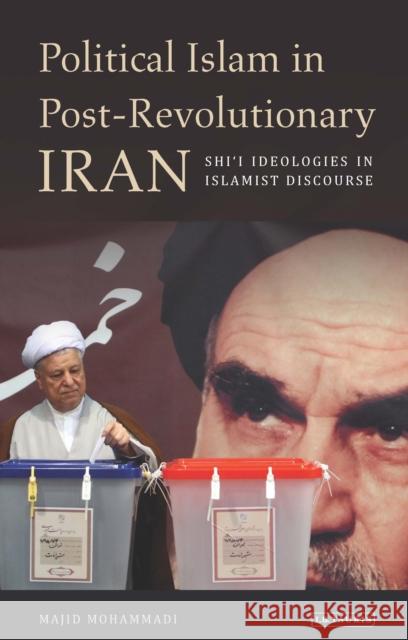Political Islam in Post-Revolutionary Iran: Shi'i Ideologies in Islamist Discourse » książka
Political Islam in Post-Revolutionary Iran: Shi'i Ideologies in Islamist Discourse
ISBN-13: 9781848852761 / Angielski / Twarda / 2015 / 336 str.
In the wake of the Iranian revolution of 1978/79, the regime that took power sought to establish a form of government modelled on a particular understanding of political Islam. And since this revolution, Shi'i Islam has been used in various ways to justify political activity, both by those in government and those in opposition. As a result, outsiders often see 'Islamist ideology' in Iran as a monolith: unchanging and uniform. But as Majid Mohammadi shows in this book, the field of Islamist discourse is actually extremely wide, varied and in constant flux. By charting the central concepts and nuances of the ideological map of post-revolutionary Iran, he demonstrates how Iranian clerics, religious and secular intellectuals, and political theoreticians and activists have responded to cultural, political and social transformations since the revolution.
Political Islam in Post-Revolutionary Iran offers a wide-ranging analysis of the various different ways of conceiving of themes such as state power, democracy, human rights, constitutionalism and justice. Identifying a variety of strains of political Islam, such as a socialist Islamism, a nationalist Islamism, an authoritarian Islamism or fascist Islamism, Mohammadi highlights how these ideologies have sought to create social and political movements with the aim of monopolosing state control. He presents an integrated historical and comparative analysis of ideological production and intellectual conflicts in Iran by studying both the different strains of political philosophy as well as the socio-economic contexts which surrounding their birth and development. He includes here an examination of the ideological underpinnings of the political rhetoric and policies of figures such as Ayatollah Khomeini, Ayatollah Khameini and the presidents Hashemi Rafsanjani, Mohammad Khatami and Mahmoud Ahmadinejad.
With analysis of key thinkers such as Ali Shari'ati, Ayatollah Khomeini, Mohammad Taqi Mesbah Yazdi and Abdolkarim Soroush, and different strains of political Islam, this book is a comprehensive account of the diversity of Islamist ideologies in Iran, and how they interact with political reality.











